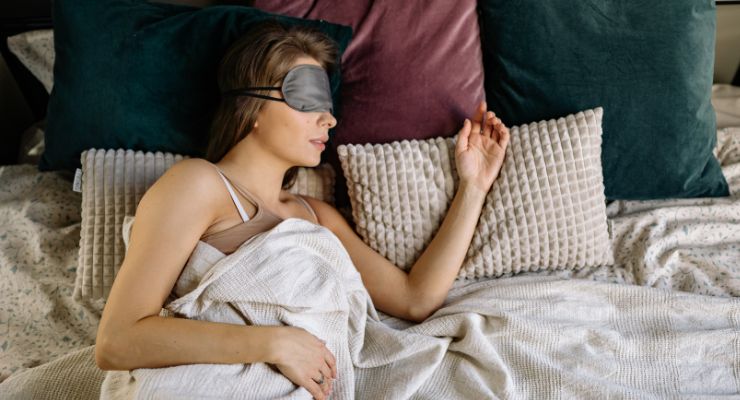Large-Scale Study Links Hemp/Botanical Blend to Sleep/Stress Benefits
The study conducted by MDbio in partnership with Radicle Science found improvements in measure of sleep, stress, and anxiety in a population of 620 adults.

By: Mike Montemarano

A large-scale clinical study found that two hemp/botanical preparations marketed by MDbio as MDsleep were associated with significant improvements in sleep onset and quality, as well as self-reported feelings of anxiety, stress, and well-being. The findings were published in Nutrients.
The study was conducted by MDbio’s contract research partner Radicle Science, in conjunction with faculty from UCLA, the University of Maryland School of Medicine, and Harvard T.H. Chan School of Public Health. With 620 volunteers, the study was one of history’s largest double-blind, placebo-controlled trials to evidence the effectiveness of a non-melatonin dietary supplement for improving sleep.
Volunteers across the United States were randomly assigned to take either a placebo, or one of two preparations of MDSleep, each of which contained federally legal limits of cannabinoids and other botanical ingredients.
One formulation contained .35 mg of THC per serving and higher amounts of GABA, botanical oils, hops oil, and valerian oil, while the other preparation contained higher amounts of THC per serving (.85 mg) and lower amounts of GABA, valerian, and hops oil. Both products contained equivalent amounts of CBD, CBN, and L-theanine.
Key Findings
The formulation which contained higher amounts of cannabinoids and lower amounts of select botanicals didn’t’ show any significant differences in measures of sleep disturbance, anxiety, stress, or well-being.
However, the formula which contained higher amounts of botanicals and lower amounts of THC was evidenced to significantly improve sleep quality, as measured by the rate of mean change in the PROMIS Sleep Disturbance score. Within the first week, participants’ sleep disturbance scores decreased by 18% compared to placebo and remained significantly lowered throughout the study duration.
PROMIS Anxiety and Stress scores also demonstrated significant improvements in feelings of both anxiety and stress in participants in the latter, low-THC formulation. These improvements were 17% and 38% greater than those experienced by the placebo group, respectively, and clinical significance for both domains was achieved within week one.
According to World Health Organization Well-Being Index scores, there was a significant improvement in well-being in the MDSleep group compared to those taking a placebo. As measured by those scores, the treatment group saw a 14% improvement, which was 64% greater than placebo.
While not statistically significant, 57.3% of participants experienced a minimal clinically important difference in their sleep quality relative to 42.2% of participants in the placebo group.
There were no serious side effects, or significant differences in side effects present across any of the study groups.
Tapping into Synergies
“Our commitment to medical-grade botanical formulations is reflected in the results of this study, which shows how precision dosing of multiple ingredients, polypharmacology, makes a significant difference in clinical effectiveness. We are thrilled that the medical community can now proudly recommend a clinically-proven sleep aid that is backed by the scientific rigor we expect as practitioners,” said Babak Larian, MD, FACS, co-founder of MDbio.
This study supports the concept of synergy between multiple botanical ingredients, said Emily Pauli, PharmD, chief research officer at Radicle Science. “It highlights the importance of methodical formulation development and testing through rigorous clinical trials such as Radicle Rest.”
MDbio notes that other clinical trials are underway for additional products, and the company is poised to disrupt other nutraceutical spaces through its formulation pipeline, which includes other botanical variations that are hemp-free.


